
Okra (Hibiscus esculentus) is valued for its edible green seed pods. It is rarely eaten as is, except when fried with a meal; a small quantity is usually cooked with other vegetables or added to soups and stews.
Okra grows best in well-drained, sandy loam soils. A poorly drained soil may cause the plant to drown. Okra is highly sensitive to soils with a hardpan: soil compaction can severely restrict plant growth.
The optimal soil temperature for growth is 24°C to 32°C, and the minimum soil temperature is 18°C. Damping off (seed rot) and seed decay are likely to occur at a soil temperature below 21°C.
PREPARATION
Turn the soil after the harvest in autumn and early spring. This will expose overwintering insects to frost, killing them, and bring weed seeds to the surface to germinate. The weed seedlings will be destroyed when you disc the soil before planting, thereby reducing chemical use and saving on labour for weeding.
Recommended row spacing is 71cm to 96cm, with 20cm to 30cm between plants in the row. Treat the seeds to reduce damping off and plant them 2cm to 5cm deep. The recommended seeding rate is four to six seeds per 30cm.
When the plants are 8cm tall, thin them out so that they are 20cm to 30cm apart. Between 5kg and 6kg of seeds are required to plant 1ha. If a precision planter is used, plant at a rate of 3kg/ha.
Okra has a thick seed coat and does not germinate easily. Encourage germination by soaking seeds in water four to six hours or overnight immediately before planting. The seed must be surface dried for mechanical planting. Before planting, carry out a soil analysis and follow its recommendations. A high level of nitrogen (N) will cause excessive vegetative growth, reducing yield.
この記事は Farmer's Weekly の Farmer's Weekly 5 August 2022 版に掲載されています。
7 日間の Magzter GOLD 無料トライアルを開始して、何千もの厳選されたプレミアム ストーリー、9,000 以上の雑誌や新聞にアクセスしてください。
すでに購読者です ? サインイン
この記事は Farmer's Weekly の Farmer's Weekly 5 August 2022 版に掲載されています。
7 日間の Magzter GOLD 無料トライアルを開始して、何千もの厳選されたプレミアム ストーリー、9,000 以上の雑誌や新聞にアクセスしてください。
すでに購読者です? サインイン
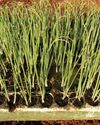
Onion sowing choices
Your particular growing conditions will dictate whether you should use seedbeds, direct seeding, or plugs for sowing onions
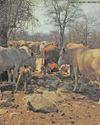
Golden cattle for the bushveld
This article showed that a carefully selected new crossbreed offered sound advantages for extensive ranching in harsh areas.
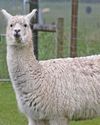
The ins and outs of alpaca farming
The South African alpaca industry is on the rise, says Alison Notley, president of the South African Alpaca Breeders’ Society and owner of Helderstroom Alpacas near Villiersdorp. She spoke to Sinenhlanhla Mncwango about the origin of this gentle camelid and how its fleece is being processed into quality products.

Cheese and Rosemary Scones
Easy-to-make savoury treats that are great for lunch boxes.

Cape Town on a budget: a smart stay at the Holiday Inn Express
What's the best way to enjoy Cape Town's top food and nightlife without having to splurge on a five-star hotel? Brian Berkman has some good suggestions.
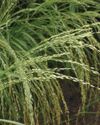
Managing grazing and hay production in Eragrostis fields
Summer is almost gone, so it’s time to start thinking about your pastures and hay for winter
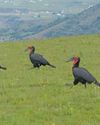
Protecting the king of the hornbills
It is estimated that the southern ground hornbill’s original range in South Africa has decreased by two-thirds over the past century. Mike Burgess looks at the threats facing this iconic hornbill species and what is being done to halt its decline, including custodianship programmes that motivate landowners to protect it.

Jam-packed year for Volkswagen
It is going to be a busy year for Volkswagen as the German carmaker introduces a host of new passenger and commercial vehicles to the South African market. Charl Bosch attended the annual VW Indaba in Kariega, Eastern Cape, to get a glimpse of its 2025 product roll-out.

How to achieve ostrich product perfection
Ostrich farming is a well-established industry in South Africa which, aside from meat, produces feathers and leather that are in demand around the world. Dr Anel Engelbrecht, ostrich researcher at the Western Cape Department of Agriculture’s Oudtshoorn Research Farm, shared tips with Glenneis Kriel on how farmers can improve the quality of their ostrich feathers and leather.
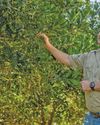
Building the macadamia puzzle one insight at a time
Trees that produce good yields of quality nuts form the foundation of a successful macadamia farm. Leaving no stone unturned in his approach, farmer Hentie van der Merwe has proven that paying attention to every factor that influences his crop yields the best results.